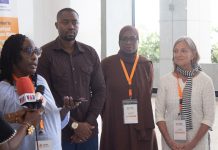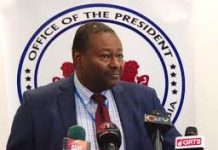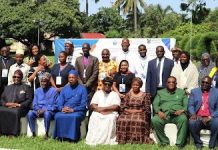By Ndey Sowe
The National Agency Against Trafficking in Person (NAATIP) has recently engaged Civil Society Organizations (CSOs) to deliberate on Trafficking in Persons in The Gambia.
The anti-trafficking agency, which is under the purview of the Ministry of Justice (MoJ), brought together CSOs from different works of live within the country to sensitize them on the danger and consequences associated with human trafficking and also the role they could play in the fight against human trafficking in The Gambia.
NAATIP Executive Director, Tulai Jawara Ceesay, said her-led agency was created primarily to combat cases of trafficking in persons as a form of transnational organized crime.
She said the function of NAATIP is subjected to the provision of the 2007 Trafficking in Person Act and in addition to any other function expressly conferred on it by other provisions of this act.
Another function of agency she said is to: “Initiate measures to inform and educate the public including potential victims, about the causes and consequences of trafficking, adopt measures to reduce the demand for a commercial sex act and participation in international sex tourism by Gambians.”
Director Ceesay said NAATIP partners with state and non-state actors and they conduct border tour to all the border areas across the country, where they educate the populace and/or communities on the ills and dangers of trafficking in persons.
Hamidou Jallow, from Center for Street Children and Child trafficking Studies, emphasized the importance of concealing the identity of victims, saying is their responsibility to persevere the right of citizens and non-citizens.
Jallow said victims of trafficking are often seem anxious, fearful, or paranoid, avoid eye contact, tearfulness or have sign of depression, or have unexplained bruises or cuts or other signs of physical abuse.
“Victims of trafficking are proof of the offense of trafficking and are vulnerable in terms of information,” he said.
Bafo Jeng, Senior State Counsel said trafficking in persons and smuggling of migrants are considered crimes under the United Nations Protocol.
Jeng said trafficking in persons can be understood as required action, means and purpose action that include recruitment, transportation, transfer, harboring among others.
Jeng further said the Gambia’s porous borders have, for a long time, contributed to the active transit of boys and girls mainly from West African countries that are recruited and exploited in the sex and labor market.





















